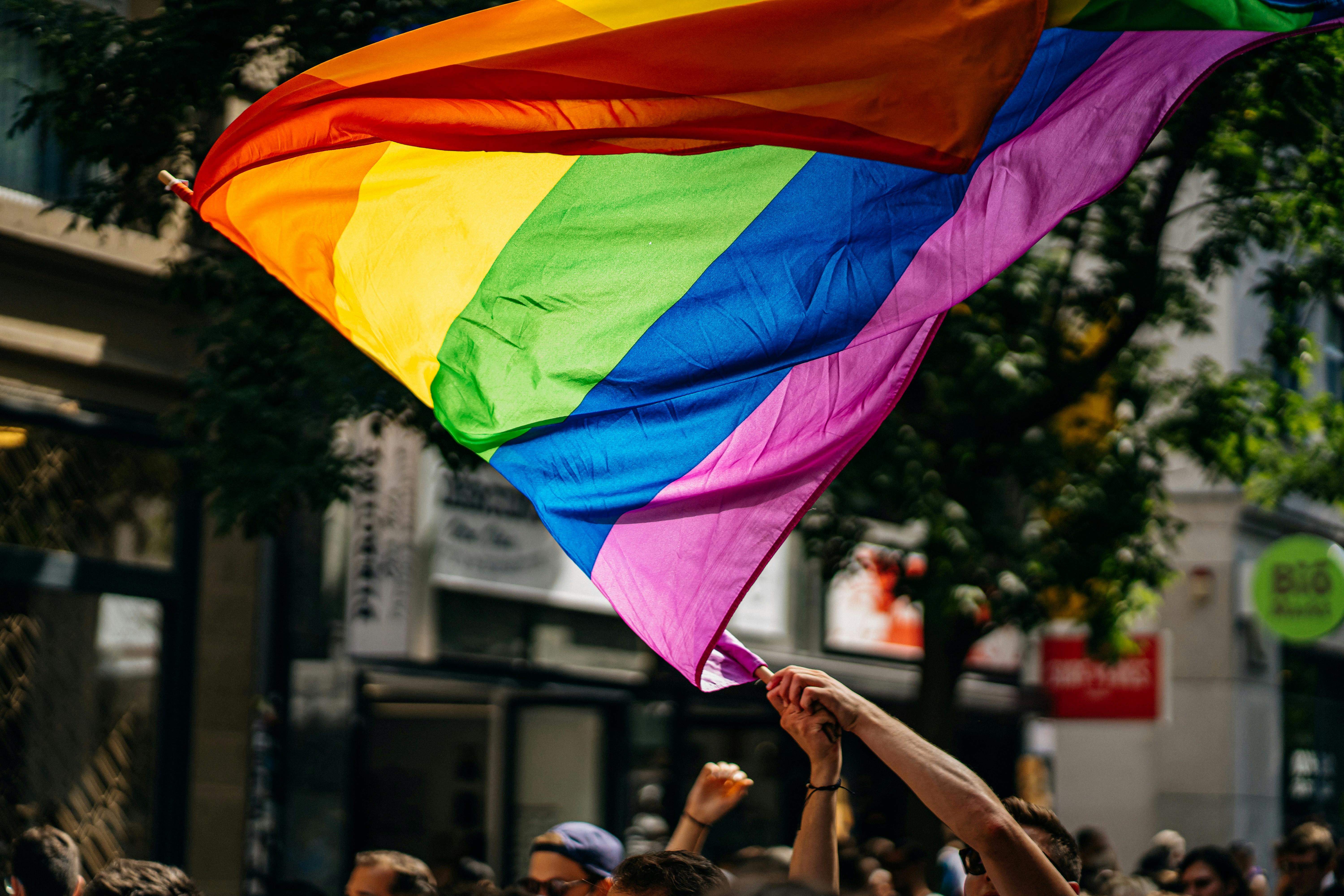By Thomas J. Rachko, Jr. and Sophia Benavente
June is LGBTQ+ Pride month, a time to celebrate the LGBTQ+ community and commemorate the Stonewall Uprising which occurred on June 28th, 1969. Latine activists such as Mexican American writer John Rechy and Puerto Rican/Venezuelan American Sylvia Rivera played crucial roles in the demonstrations during the early years of the movement. However, 50 years later LGBTQ+ Latines in America continue to face unique challenges that lie in the intersection of their identities. It is not only vital to acknowledge these issues, but to uplift the stories and voices of these individuals to encourage and celebrate the pride they hold for themselves.
1. An estimated 2,352,000 U.S. adults identify as both Latine and LGBTQ+.
That equates to nearly 6% of the 65.2 million Latine adults in the United States. According to a study conducted by the Williams Institute in 2021, 52% of LGBTQ+ Latine adults are women, and 48% are men.
2. As the population of LGBTQ+ Latines increases, so does visibility in both the political sphere and the world of arts.
As reported in Axios according to data from the LGBTQ+ Victory Institute, there were 165 openly LGBTQ+ Latine elected officials over federal, state, and local offices as of June 2023. This represents a 224% increase from 2017. Moreover, Latine LGBTQ+ officials represent around 14% of all LGBTQ+ elected officials.
In 1989, three-term alderperson Ricardo Gonzalez made history as the first openly gay Latine elected official in the U.S. In Puerto Rico, Justice Maite Oronoz Rodríguez, the fifth woman to serve on the island’s Supreme Court, became the first openly LGBTQ+ chief justice in U.S. history when she assumed that role in 2016.
LGBTQ+ Latine artists such as Ricky Martin and MJ Rodriguez — who made history as the first trans woman to win a Golden Globe — have contributed to greater visibility and representation in the entertainment industry, inspiring others to embrace their identities. American television shows like Gentefiedand Vidahave also highlighted the diverse experiences of LGBTQ+ Latines, bringing authentic, meaningful stories to mainstream audiences.
3. Latine LGBTQ+ young people often report mental health challenges, including suicidal thoughts.
In a study conducted by the Trevor Project in 2023, 44% of Latine LGBTQ+ young people reported to seriously having considered suicide in the past year, including 53% of Latine transgender and nonbinary young people compared to 32% of Latine cisgender LGBTQ+ young people.
Additionally, 16% of Latine LGBTQ+ young people report having attempted suicide in the past year, including 21% of Latine transgender and nonbinary young people compared to 9% of Latine cisgender LGBTQ+ young people. These data have become all the more relevant after the Trump administration ordered the termination of the National LGBTQ+ Youth Suicide Lifeline, effective in three weeks, July 17th.
4. LGBTQ+ Latine Americans struggle financially, despite having a college education.
According to a study conducted by the Williams Institute, among Latine adults ages 25 and older, more LGBTQ+ than non-LGBTQ+ adults have a college education: 22% of Latine LGBTQ+ adults have a college education, compared to 17% of non-LGBTQ+ adults. Despite this, nearly 40% of Latine LGBTQ+ adults (37%) live with a household income below $24,000 per year.
Latine LGBTQ+ adults are more likely to be unemployed (10% vs. 8%) and to experience food insecurity (32% vs. 25%) than Latine non-LGBTQ+ adults. Latine LGBTQ+ adults are less likely to live in low-income households—that is, below 200% of the federal poverty level (FPL)—than Latine non-LGBTQ+ adults. Despite this, Latine LGBTQ+ report being supported by their communities, with about two-thirds (68%) of Latine LGBTQ+ adults reported feeling supported through their social circles. The kinship present in both Latine and LGBTQ+ communities suggests that they uplift one another, especially in times of need.
5. There is power in community organizations for LGBTQ+ Latines in the United States
8 in 10 Americans support laws that would protect LGBTQ+ communities, including 80% of Hispanic Americans, according to a 2021 report by the Public Religion Research Institute, National Latine Organizations such as the Hispanic Federation, La Clínica Del Pueblo, Latino Equality Alliance, Familia: Trans Queer Liberation Movement, and others are working to support Latine LGBTQ+.
The challenges faced by LGBTQ+ Latines in the United States are distressing and damaging to an already marginalized group. Yet, the sense of community that has been fostered and continued to grow into the United States for these individuals is a testament to their resilience and the beauty that comes from it. Awareness of these issues should not just be discussed during Pride Month, but year-round, to ensure that all of the LGBTQ+ community remains visible, valued, and supported at all times.
Thomas J. Rachko, Jr. serves as a Translational Research Manager at the Cisneros Institute. He also serves as the Policy Lead at the Im/migrant Well-Being Scholar Collaborative. Thomas's views are his own and not necessarily reflective of the Cisneros Institute.
Sophia Benavente is a Cisneros Scholar majoring in Political Science and History. This summer, she is a Law and Policy intern at the Im/migrant Well-Being Scholar Collaborative. Last summer, she was Comunicadores intern at Bazelon Center for Mental Health Law. Sophia's views are her own and not necessarily reflective of the Cisneros Institute.


